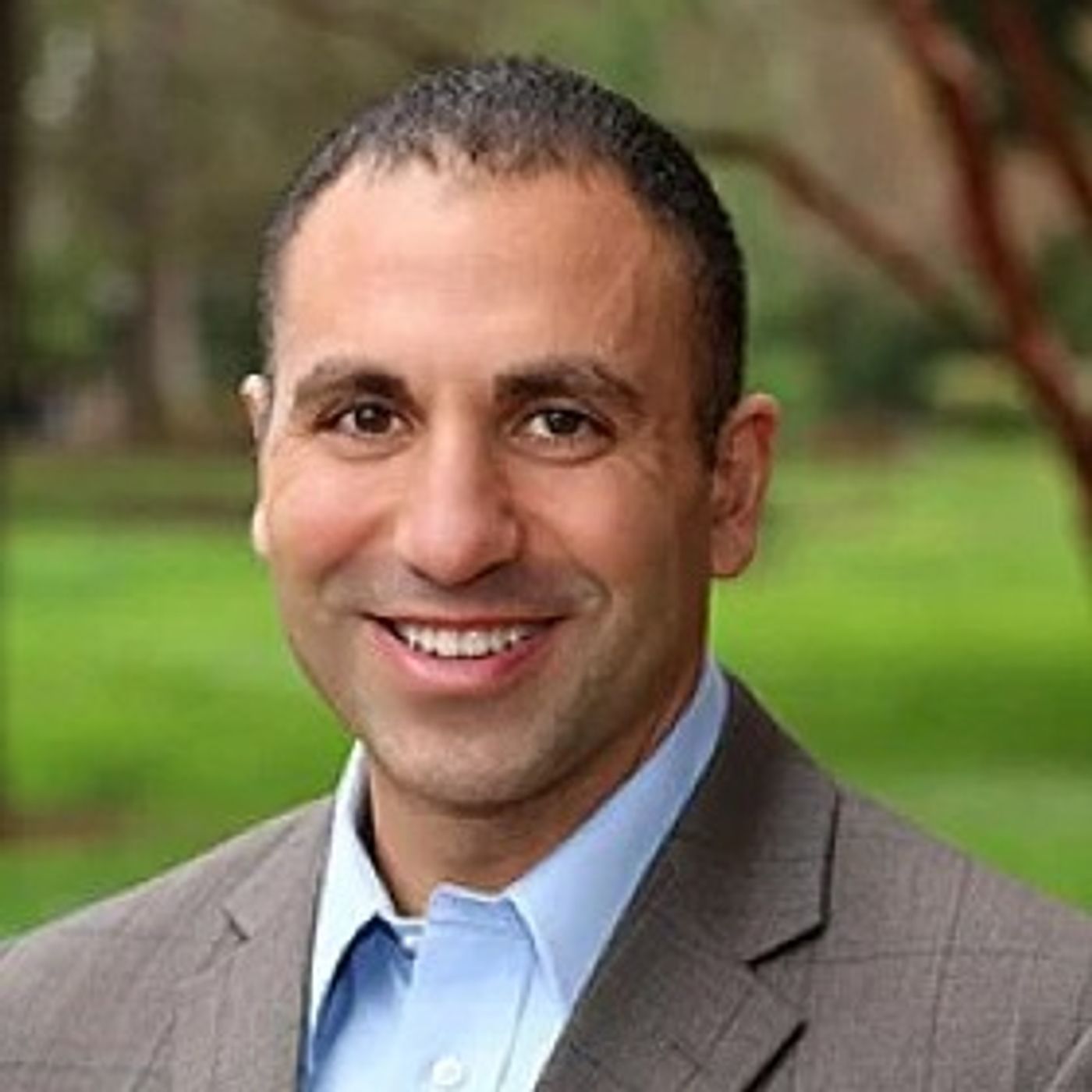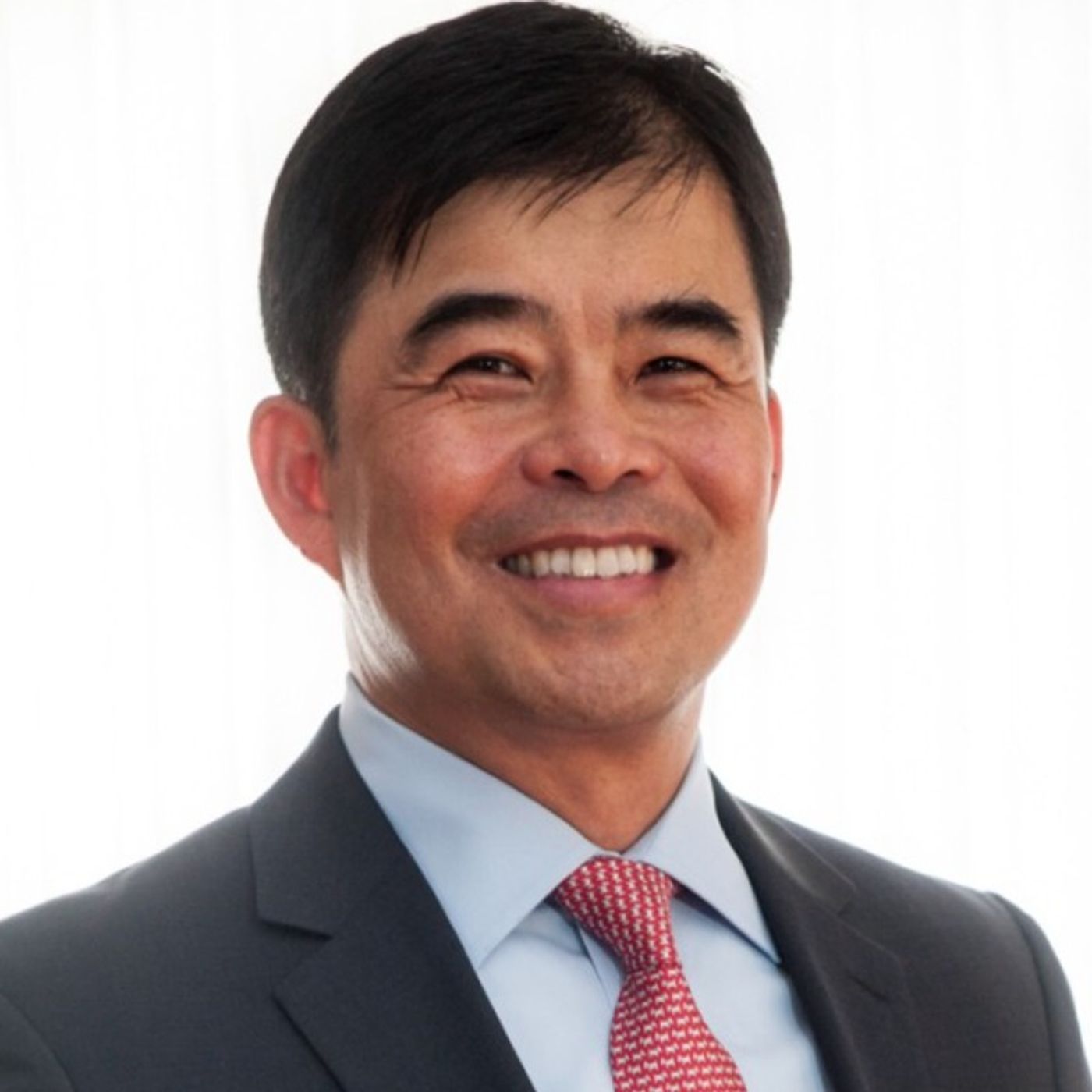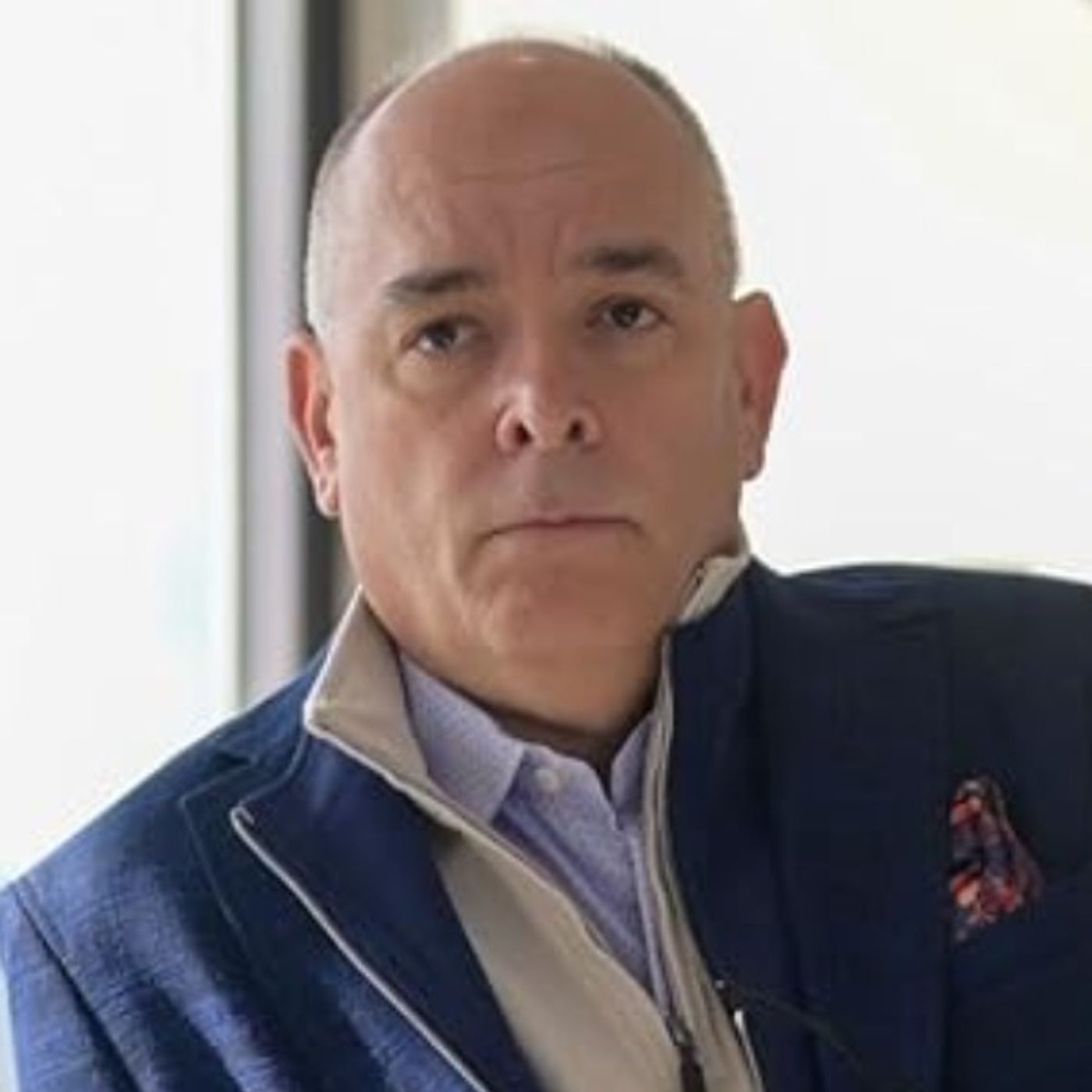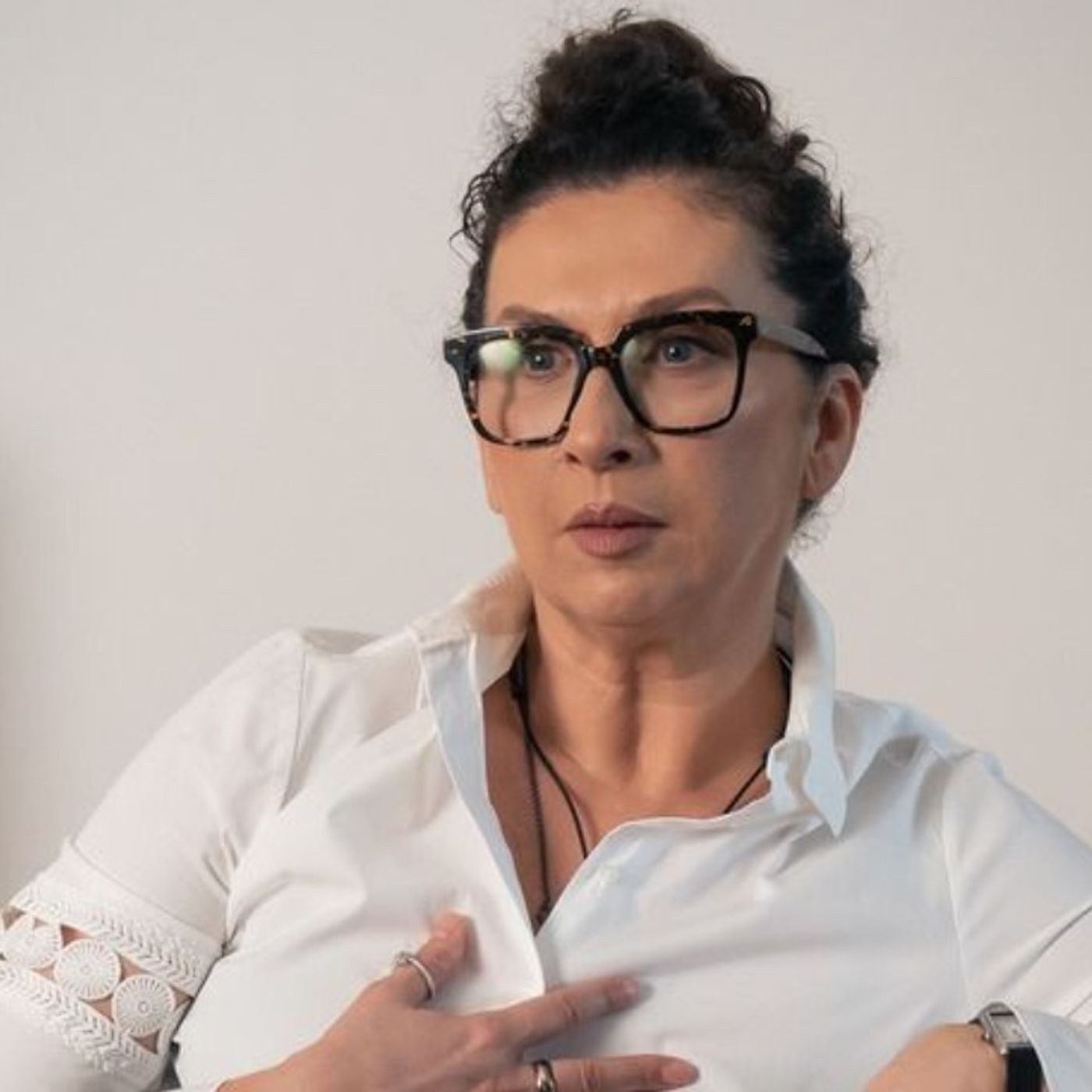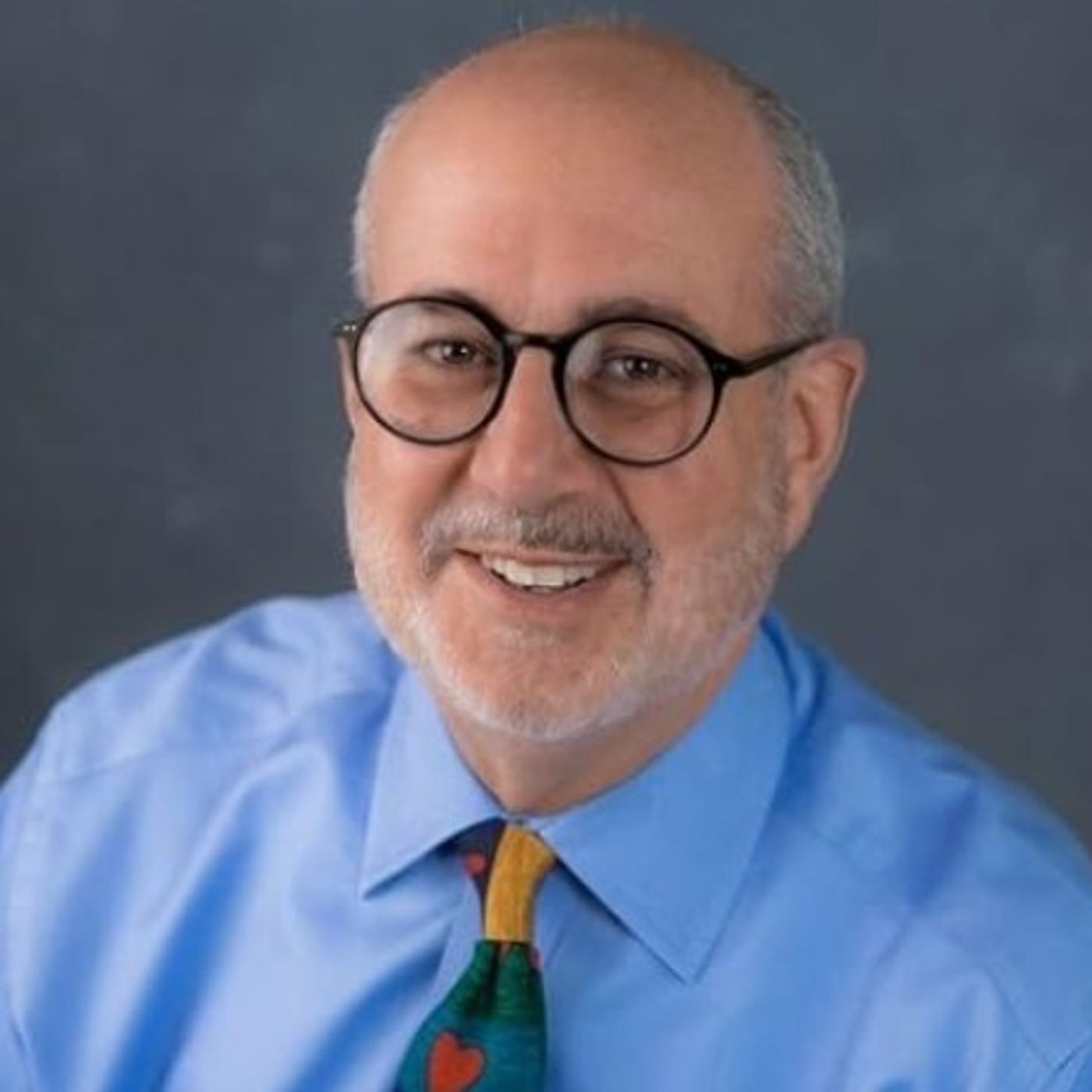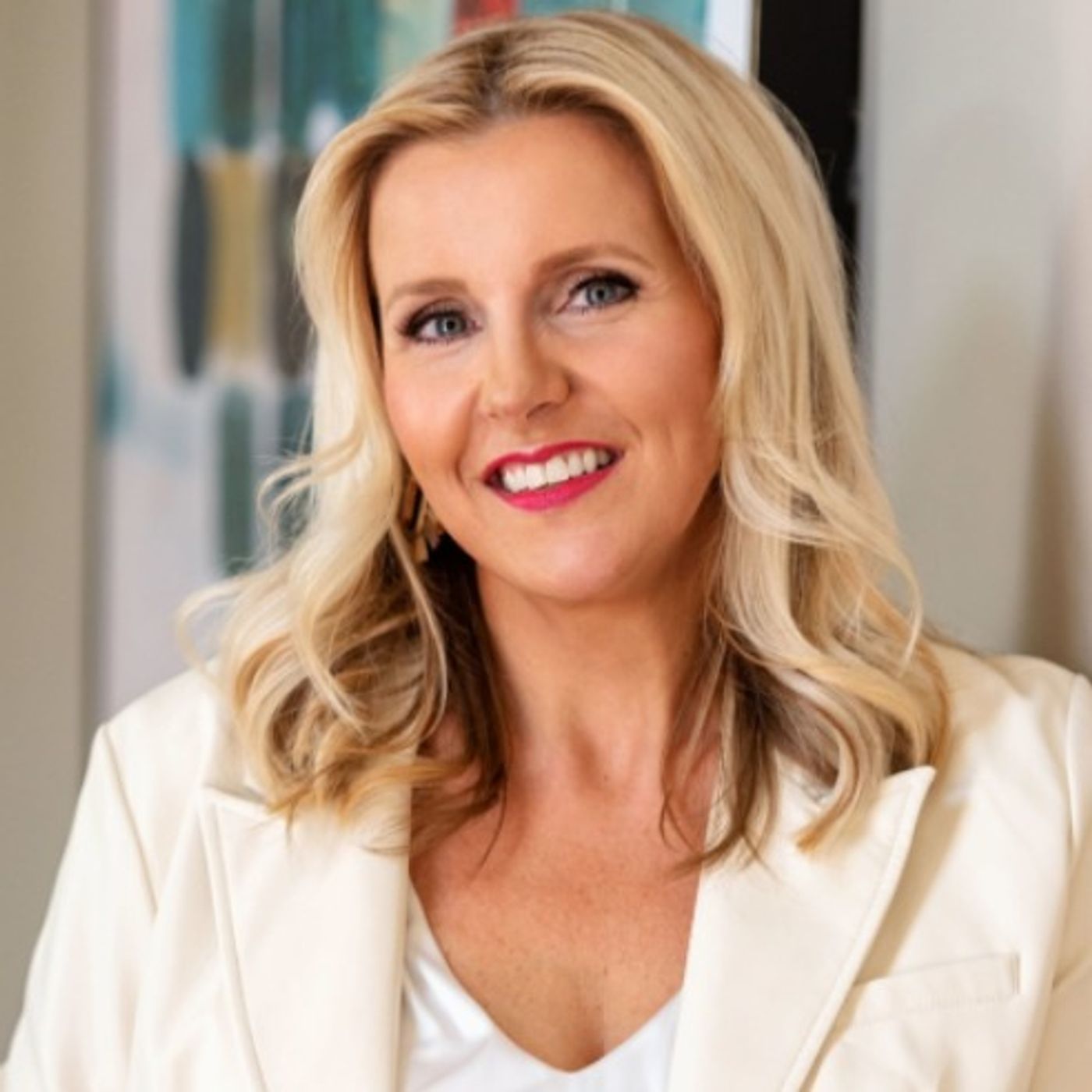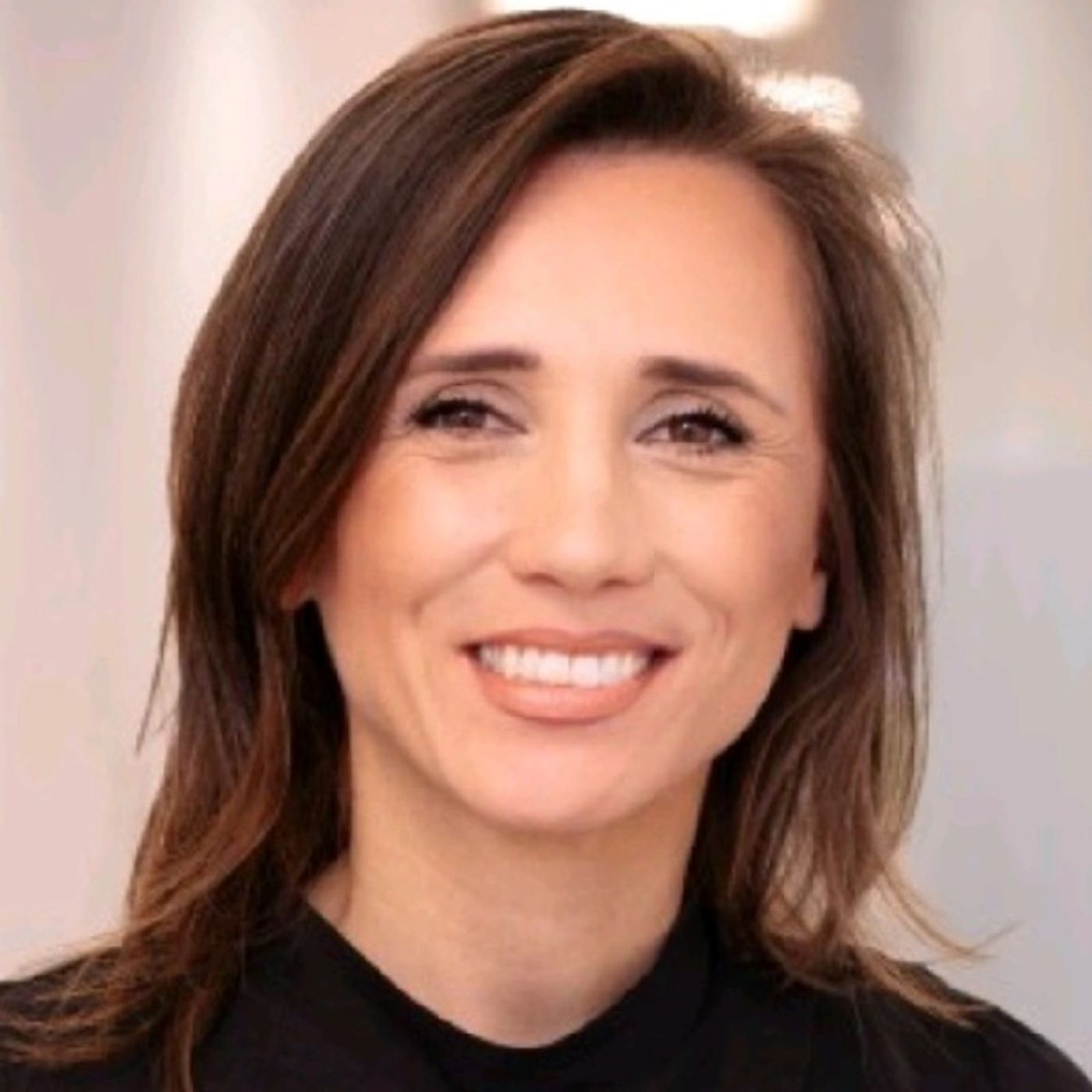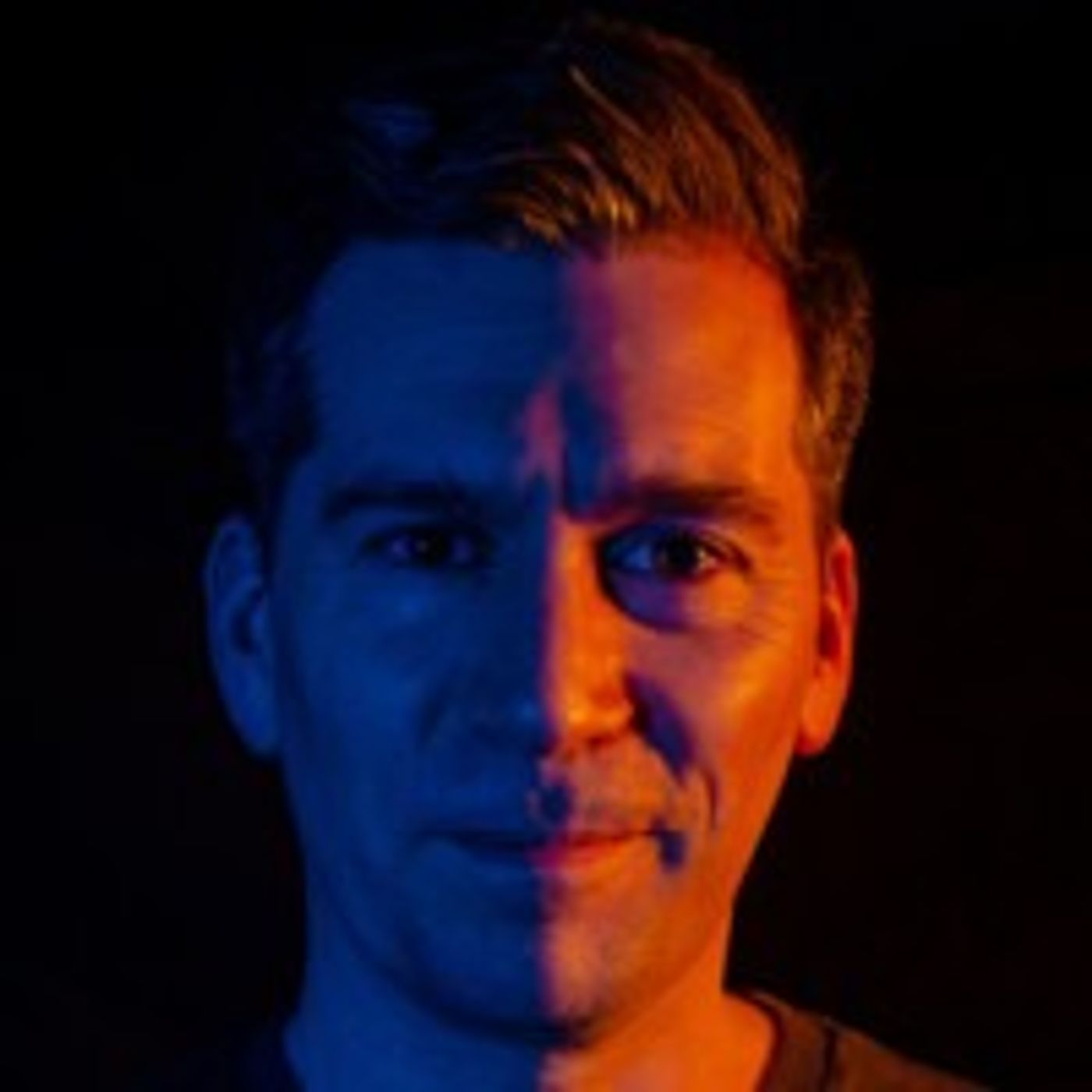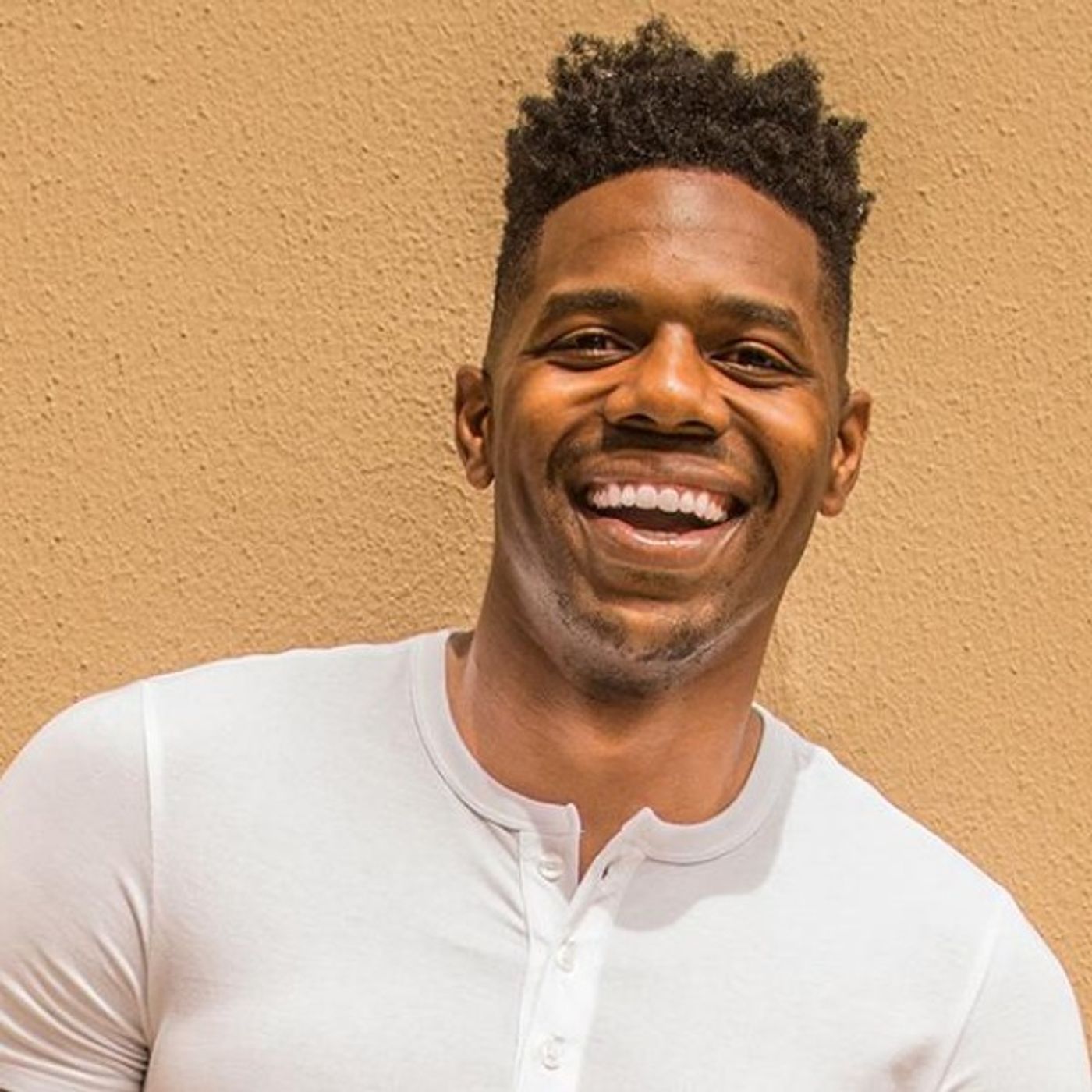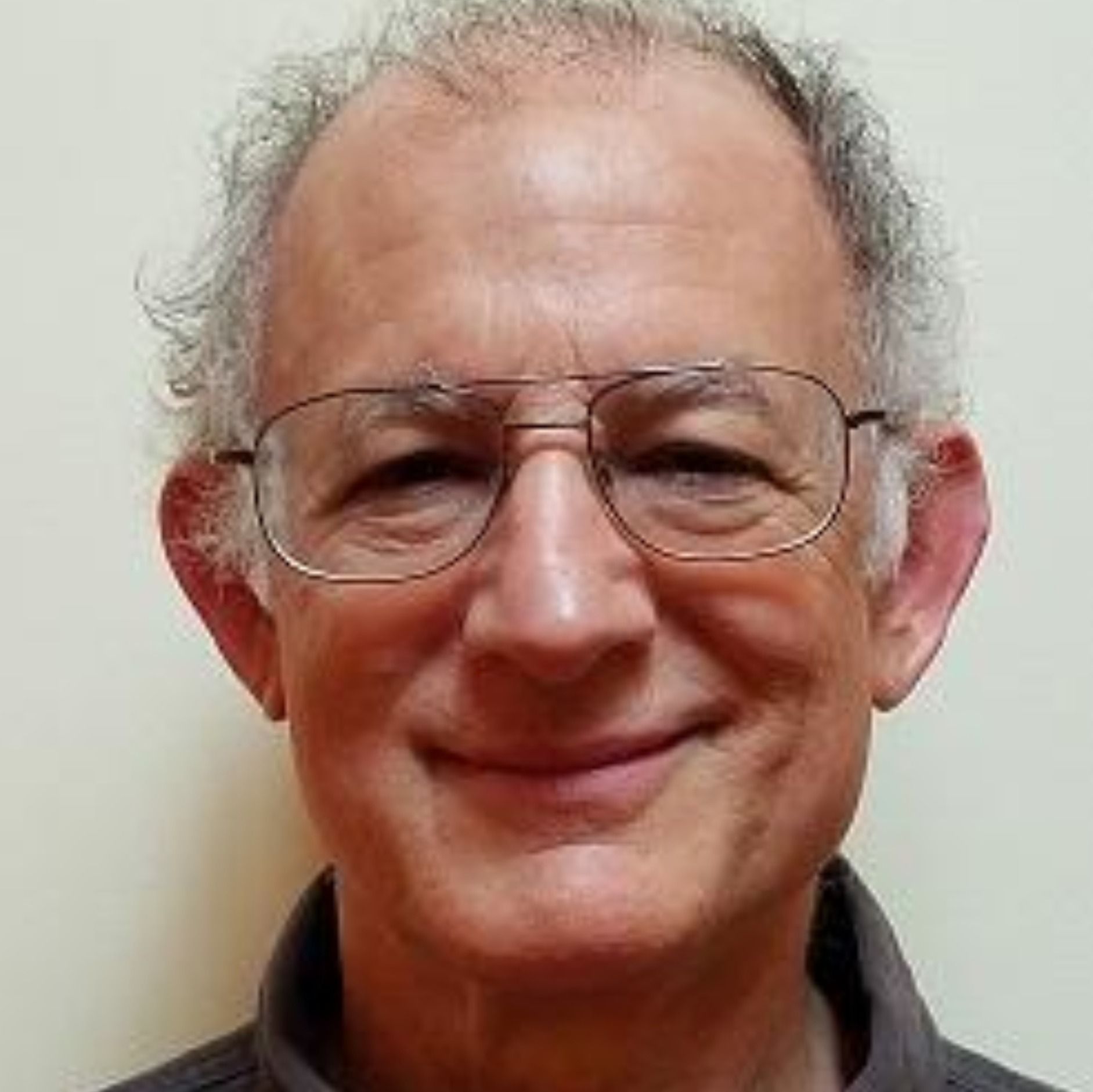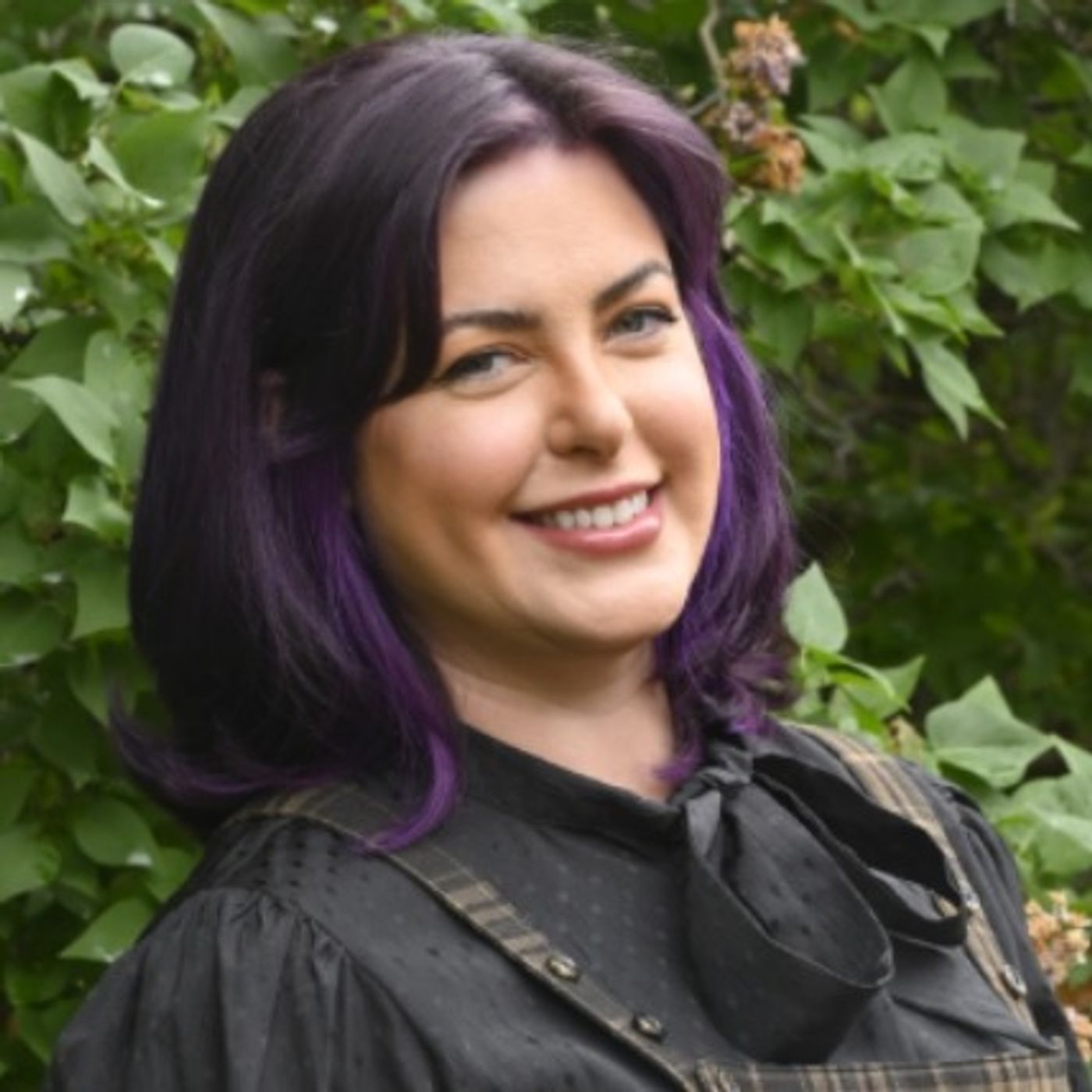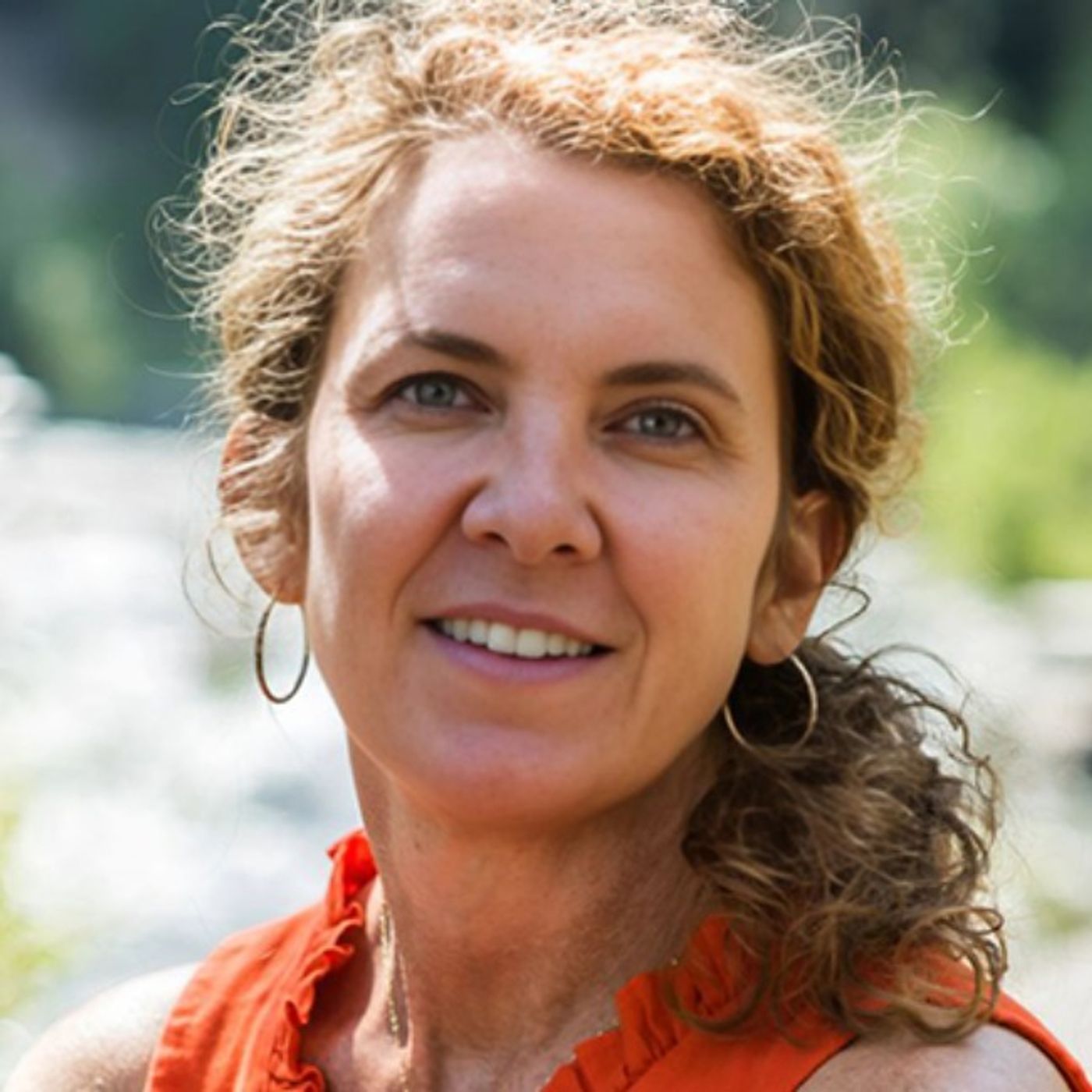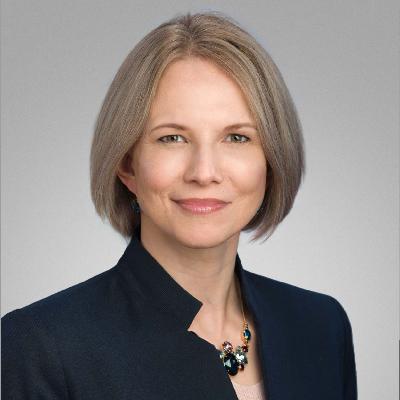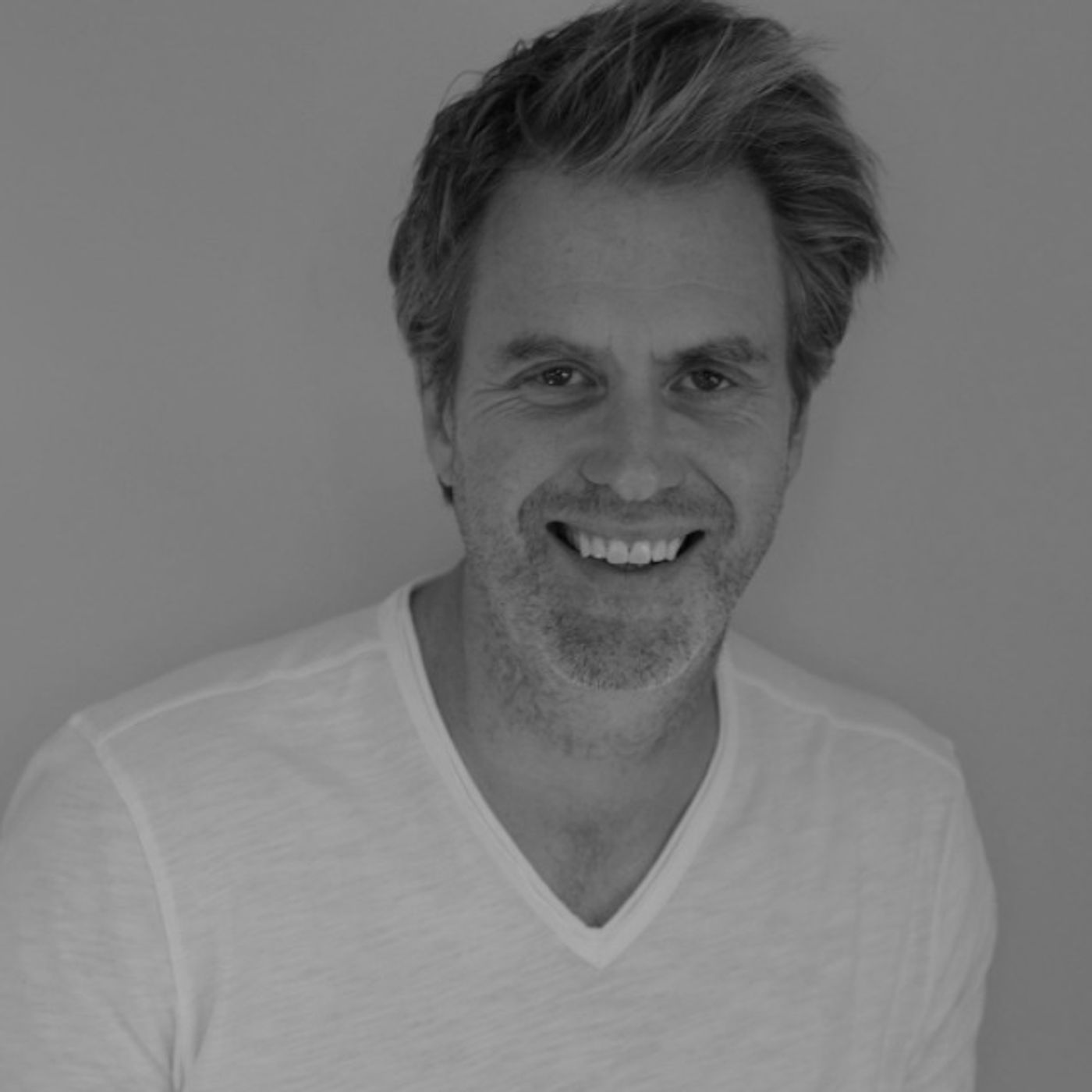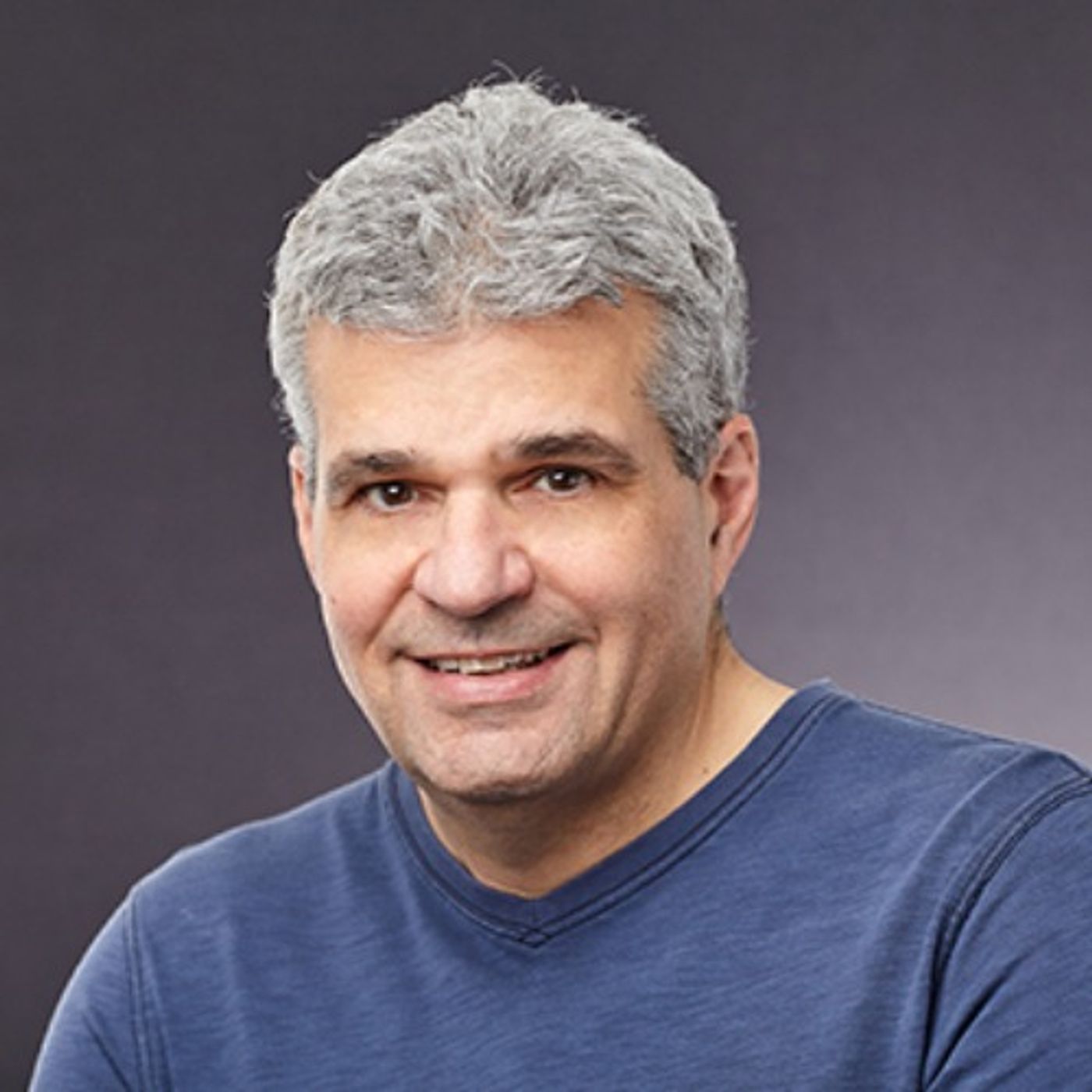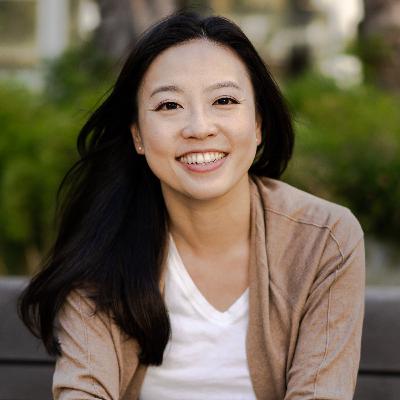Discover Experience by Design
Experience by Design

Experience by Design
Author: Gary David
Subscribed: 14Played: 246Subscribe
Share
© Experience By Design
Description
This is Experience by Design, a podcast that brings new perspectives to the experiences we have everyday. Does standing in line always have to suck? Why are airports so uncomfortable? What does it mean to be loyal to a brand? Why do you love being connected but dislike feeling tethered to your smart phone? Can we train people to care about the climate?
Join Sociologist Gary David and Anthropologist Adam Gamwell on an expedition to the frontiers of culture and business through the lens of human experience. We're here to make sense of the madness with leading psychologists, cognitive and social scientists, entrepreneurs, and business leaders.
Join Sociologist Gary David and Anthropologist Adam Gamwell on an expedition to the frontiers of culture and business through the lens of human experience. We're here to make sense of the madness with leading psychologists, cognitive and social scientists, entrepreneurs, and business leaders.
145 Episodes
Reverse
I went to a Catholic all-boys high school run by the Christian Brothers, a teaching order founded by St. John the Baptist De La Salle. I will give them credit for giving me great preparation for future academic success, and even maybe this podcast. So at the foundation of Experience by Design are the Christian Brothers. But that wasn’t my first brush with Catholicism. I did a fair number of the sacraments growing up and into adulthood, a process which included learning about the tenets and history of such central figures like Jesus. One of the things I recall learning about was the Sermon on the Mount and the Beatitudes. I also preferred the Beatitudes to things like the Ten Commandments. In a way the Commandments can read like the rules of a HOA of all the things you can’t do. It is important to remember things like “Thou shall not kill” and not to “covet thy neighbor’s wife.” But I liked the Beatitudes because they gave props to people already doing good things.A really good one is “Blessed are the peacemakers, for they will be called children of God.”Regardless of your religious or spiritual beliefs, I think we can all get behind that, especially at a time when there is so much conflict. The Armed Conflict Location and Event Data global monitor organization states, “Recent levels of violence have been unprecedentedly high, with several ‘record-breaking’ months in the past year.” But this just doesn't mean armed conflict on the international stage. Things are tense all over with all kinds of conflict everyday.Which is why we have Josh Gordon as a guest on Experience by Design. I’ve known Josh for a long time, but primarily in the capacity of a fellow runner and training partner. Josh also is a faculty member at the University of Oregon, a leader in the area of sports mediation, and the founder of the Sports Conflict Institute. In his career, Josh has done work with FIFA, Major League Baseball, Court of Arbitration for Sport, and others. We talk about fairness and equity in sports, and why emphasizing the opportunities provided by sports are meaningful and should not be derailed. We explore how we can build inclusive cultures through sports. He takes us into his work at the collegiate level, and how setting expectations ahead of time can produce greater satisfaction and happiness with ensuing experiences. We also talk about the difference between ‘distress’ and ‘eustress’, and why a little bit of friction can be essential to growth. Finally we explore how we can create equitable organizational cultures, and why the perception of fairness can be more important that the presence of outcome.Sports Conflict Institute: https://sportsconflict.orgJosh Gordon: https://www.linkedin.com/in/joshuagordonSports Conflict Institute TV: https://sportsconflict.org/sci-tv/
My first jobs were in restaurants washing dishes and busing tables. I would go on to do other jobs in restaurants, including cooking, waiting on tables, hosting on occasion. I think working in restaurants is a great first job because it teaches you to deal with people, and work in collaboration with different functions. So no matter what you do in a restaurant, it is a great experience to prepare for life. While I for sure was ‘cooking,’ I wouldn’t call myself a “cook.” And definitely wouldn’t consider myself being a “chef.” I was just a person following instructions and performing it in a way that was consistent with expectations. I was told how to prepare something, and I followed those instructions. I know that not everyone can accomplish that, but I don’t consider it a great mark of distinction. Being able to successfully combine ingredients in a way that is proscribed is another one of those life lessons that can be applied in a lot of areas. Including organizational leadership.Organizations after all are just assemblies of ingredients. There are proscribed ways of putting these organizational ingredients together. Accountants go in the accounting department. Sales people in sales. Marketers in marketing. Etc. And these people sit in the same areas as each other, and they do the work that is related to their areas. And on it goes. That doesn’t take a lot of visionary ability. It typically is the way it goes in all organizations. Now if you think of the ingredients right now in your kitchen, there are the staples that you typically rely on and use. You are comfortable with them and know how to deploy them. There are also those things that are seldom used, and you even forget you have. I’m thinking here of the spices I have that I forgot I have and never get included. There also is the stuff in the shelves and freezer that got buried, or maybe I got to use once. So lots of ingredients with no clear idea of what to do with them. There used to be a show with Chef Alton Brown where he would just go into someone’s house and make a meal with what was there. That’s talent.On today’s episode, we welcome someone who knows about putting things together, something about how leaders use ingredients, and something about food. Dr. James Shin got his PhD from Penn State in Industrial Engineering, writing a dissertation that looks at (in part) simplicity versus complexity in the design process. Part of what he learned is that if we minimize the problems from the start, they can become more manageable, allowing us to make more progress. Rather than go the academic route, he went into industry given his interest in applying knowledge to practical problems. Working in a global organization, he also learned how approaches used by different cultures may work in that particular culture, but may not work as well in other cultures and contexts. Another thing he learned from his global work is that middle management is typically overstressed and underappreciated no matter where in the world they are located. We talk about his new book “The Leader’s Soul: 52 Reflections for Unlocking Your Inner Leader.” In it, he looks at his own upbringing in South Korea, moving to the US as part of his PhD completion, his journey through corporate America, and his return to Asia in capacities that included speaking at universities. We also talk about his company Blue Koi, and how the koi fish symbolizes growth. However, as he shares, the best kind of sustainable growth occurs not necessarily through focusing on rapid achievement, but through pacing ourselves in our efforts and life. He also reflects on the importance of nuance, and how he had to break from the black and white thinking that can be more prominent in engineering and how humans need to be factored into design. And there was some conversation about preparing food, and the importance of not just using the right ingredients, but using the ingredients you have in creative ways.Blue Koi: https://www.bluekoiglobal.com/James Shin: https://www.linkedin.com/in/james-j-shin/"The Leader's Soul": https://www.amazon.com/Leaders-Soul-James-Shin/dp/1963701534
One bit of news that caught my attention was the declining trust that the American public has in higher education over the last decade. In good news, Gallup found that trust did increase from 2024 to 2025. However, it is still markedly down from 2015. Not surprisingly, those levels of trust differ by political affiliation, as most things seem to different by political affiliation nowadays. Another study by Pew states that young adults are increasingly questioning the value of a four-year college degree, especially when looking at the cost of it. This is coupled with smaller four-year liberal arts institutions because of declining enrollment. There are a number of factors for this, but a main one is whether such an education adequately prepares one for a successful future, or whether it is really necessary at all. But if not higher education, then what? Where are 18 year olds supposed to go after they graduate high school? It is true that skilled tradespeople are in demand and can lead to a career. In fact, there is an increase in the number of people entering trade school and vocational programs. That for sure is great news.Another pathway for young adults is joining the military. Those numbers have been increasing as well, reversing a long-term trend of declining enlistments. However, less than 1% of Americans are on active duty. The current overall veteran population is only 7.4%. The larger question still remains of whether being in the military can adequately prepare a person for life and a career after serving?My guest today on Experience by Design podcast thinks so. Lee Pepper has served in the military, and he also has worked in business. He sees a lot of connections between the two, which he wrote in his book “Never Outmatched: Military Strategies to Lead, Innovate, and Win in the Modern Marketing Battlefield,” which I will say I have read and is pretty great. We talk about how innovation doesn’t mean throwing everything out, but new applications in current environments given emergent tools. He describes how he seeks to mentor soldiers who are struggling after the military to help them apply what they learned in the service to life outside of it. He translates how military speak can be translated into corporate speak to help increase those connections. Lee also talks about how these lessons can be applicable to everyone looking to improve innovation, strategy, and leadership. He also relates his marketing work for a recovery and treatment facility, and what he learned from that environment and how lifetime relationships can help for long-term recovery. Finally, he shares his experience about being a docent in an art museum, and how his wife’s art work relates to his own creativity, risk taking, and innovative inspiration. Lee Pepper LinkedIn: https://www.linkedin.com/in/leepepper/Never Outmatch Book: https://www.neveroutmatched.com/
I don’t think I am alone in finding art very intimidating, but yet like all of us being I am inextricably drawn to it. I had the chance to go to a concert last night with the band Queens of the Stone Age. I have seen them three times before, but never quite like this. For this tour, they were playing beautiful smaller venues, like the Boch Theater in Boston where I saw them. The tour was in support of their “Alive in the Catacombs” movie and album, which was recorded in the catacombs under Paris. One of the things about this concert was the band’s request to get dressed up in your best attire for an experience unlike any other concert you’ve been to. And reading the reviews provided by attendees online, you can see that the concert produced such an effect. Like any good drama, the concert used a three-act structure put into parts that started very paired down into an orchestra of light, symphony, rock music, and drama. It was pretty remarkable, and as I watched it I couldn’t help but wonder about the creative and artistic minds that put this together. Not just the music, but all of it. Who are the minds that conceived it, and where does that come from? And as I sat there wishing I had taken more music lessons so I could produce such an experience for the world, I have to admit that I was both in awe and uplifted, and feeling diminished because of my lack of ability.I’m sure if I would talk to the artists involved, and if you’re listening let me know, they would say that is not the point of artistic creation. It is not to make those non-creators feel insignificant, but rather to allow them to share in the potential of creation. We all have the potential for artistic expression and creation on whatever scale we can manage. What typically stands in our way is our own feelings of self-doubt and inadequacy. Those feelings get magnified when our initial attempts don’t meet with our own expectations. We are truly our own worst critics, and that art critic can be pretty unforgiving. To help us with finding our inner artist and creative voice is Laura Patac. Laura grew up in Romania as a very shy and introverted child. One outlet she found was poetry. But she didn’t see this as a legitimate professional outlet. Rather, she studied mathematics in university, which led to a career in Western Union, culminating in being the VP and Head of Global Retail Product. But she retained her passion for and practice of poetry and story-telling, which she has turned into her book “Stories with Purpose.”I talk with Laura about the importance of the arts, and with the arts and story telling there is no right nor wrong. She talks about the connection between poetry and mathematics. Both provided her with structure, self-expression, and a way to connect not just with others but herself. We talk about the prevalence of imposter syndrome in women, and the importance of resilience when managing corporate environments. We explore the ways that we measure success and impact, and how story telling can help us define both. More importantly we talk about how to connect narrative with purpose to create a positive impact. She describes how she helps her clients tell their story and identify their purpose so they can have that positive impact on organizations and more. Finally, she talks about how in between birth and death is choice, and we need to choose the version of ourselves that we create and present to the world. Laura G. Patac LinkedIn: https://www.linkedin.com/in/laura-g-patac/Empower Quest: https://empower-quest.com/Stories with Purpose Book: https://www.storiesholdpurpose.com/bookStories with Purpose Workbook: https://www.storiesholdpurpose.com/workbook-optin
I used to have a Zen proverb a day calendar, the ones where each day you tear off a new sheet that has another saying that was meant to make you contemplate, get in touch, consider, explore, think. My years always started off well, but by about June I was just ripping pages off trying to catch up to the day I was supposed to be on. I honestly think I got more mileage out of my Dad Joke a Day calendar that ended up replacing the Zen one in an ensuing year. But then again maybe there is something Zen about Dad Jokes.One Zen proverb that stuck with me was, “Our eyes were originally right but went wrong because of teachers.” I have to admit that one stung a bit. Speaking on behalf of all educators, we all want to think that we are positively contributing to how our students see the world. But do we? There is the danger of formal education introducing “fixed thinking” or singular ways of conceptualizing the world around us. Students are taught what we been taught and know. Problem is, what we know might only be one dimension of how to view things.To bring in another saying, “If all you have is a hammer, then everything looks like a nail.” Thinking of “hammer” instructs how the object is to be used. But if you have no idea what a hammer was, then you could envision many different uses for it. Sometimes not knowing is the key to progress.Now it is true from a design perspective that the way a hammer is built can instruct on how it should be used. There is something that looks like a handle. The heavy end has a flat surface which can infer pounding. But creative and unconstrained thinking can see so many ways to use this object.To throw in another saying, Ignorance is bliss, and from that we might also say paradigms can obscure. Thomas Kuhn in his book “The Structure of Scientific Revolutions” examines how established paradigms can stymie progress and advancing knowledge because they limit our ability to what is in front of us. Thus, part of the advancement of science and our understanding is shedding off what teachers have taught us to be true. Rather than just teaching paradigms and how things are, teachers need to do more teaching on how to retain a beginner’s mind and connect that with envision what is possible, and not just what is believed to be known. Alan Gregerman is here on Experience by Design to talk about his new book coming out on October 14th “The Wisdom of Ignorance,” in which he examines what we can gain by letting go of what we think we know. Alan is trained as an Urban Geographer, as he was long interested in exploring cities of the world. While a student at Northwestern, he worked under the tutelage of John McKnight, one of the founders of the Assets-Based Community Development Institute, and I will add a person I also knew and took a workshop from on the ABCD approach. McKnight’s work continues to influence Alan, as well as me. We talk about his work in helping companies be creative through exploring urban environments in undirected ways. He describes how new employees are a very valuable resource because of how they bring new eyes to organizations. He notes that half of all the companies on the Fortune 500 list 25 years ago don’t exist today, and how that is in part linked to their belief in old paradigms. Alan emphasizes the importance of having teams of diverse perspectives and experiences in order to help see things differently. Also in keeping with assets-based community development, everyone has a gift that they can contribute. Alan Gregerman LinkedIn: https://www.linkedin.com/in/alan-gregerman-a33b236/Alan Gregerman: https://alangregerman.comThe Wisdom of Ignorance: https://www.amazon.com/Wisdom-Ignorance-Knowing-Innovation-Uncertain/dp/B0FJJSXVGV
We are now in the first days of autumn, and there isn’t a better time to be in New England. When I first moved to Boston, one person told me that spring was the best time in New England. I never again trusted anything that person ever told me. Fall is the best time, and perhaps September is the best month in the fall. Not that I don’t like the winter, because I do (as long as there is snow to Nordic ski on). But when things get a bit cooler and the leaves change, the sweaters and hoodies some out, it is a pretty fantastic time of the year.Another part of autumn is the fall sports season. The general sport of cultural choice in the US is of course football. My daughter plays field hockey, which is another great fall sport. I have no clue about the rules or the strategy, but it is fun to watch. And there is something great in seeing teams of young people do something else other than be on their phones. Sport definitely gives them a sense of self and structure and camaraderie that much of contemporary society can take apart, especially for young women. Additionally, I can say that my daughter is lucky enough to have great coaches as well, as the type of coach you have can dictate the type of season you have.As the father of three daughters, one of my main goals as a parent is to give them a sense of confidence and worth that comes from inside of them, and isn’t dependent on external affirmation. I’m not a woman, so I don’t know what it is like to be a woman in society. But I am aware enough to know that there can be challenges unique to women who live in a culture that has been molded around patriarchal foundations. Those traditions can be hard to overcome given how embedded they are in explicit and tacit ways, often giving to the notion “That’s just the way things are because that’s how they’ve always been.”My guest today is a woman and a former athlete, who also is a leader who helps others (especially women) realize the leadership potential they already possess. Amy Kemp started her career in education before shifting to sales, where she began to appreciate her leadership abilities. Both fields share in common the need to motivate people through leadership. Also, both areas can present challenges to women who exhibit those leadership qualities. These experiences led her to write the book “I See You”, which she describes as a guide for women to make more, have more, and be more - without more work. We talk about the challenge of teaching Shakespeare and why discomfort is vital to growth. We explore how bureaucracy can be the enemy of innovation, and how processes can override creativity. Amy talks about the presence of “yelling culture” in leadership, and the need to shift that dynamic. Finally, Amy shares the origin of her book's title, "I See You," which was inspired by a meaningful conversation with a woman who felt unappreciated, misunderstood, and generally not seen. This connects to broader themes of visibility and judgment, particularly in social media, and how these concepts relate to the book's title and its broader implications for women in the workplace. Through her coaching work, Amy helps clients receive pay raises, acquire high-paying clients, and achieve work-life balance. She emphasizes that her role is not about telling people what to do, but rather creating a space where they can find clarity and make their own decisions about income, quality of life, and purpose. Amy Kemp LinkedIn: https://www.linkedin.com/in/amy-kemp-7842a1a6/Amy Kemp: https://amykemp.com/
Recently when talking to my freshman class about time management strategies, part of me started to feel sorry for them knowing that the challenge of time management only gets harder and not easier. I’m sure it feels overwhelming to have so many classes, social activities, for some sports obligations, joining clubs, and even hopefully sleep. There is a lot to balance, and achieving that balance seems like a never-ending struggle.And of course that only gets worse. Add in children, household chores, more demanding jobs, maintaining relationships, bills, exercise, and any number of other commitments, having that balance can feel pretty impossible. I’m always trying to balance the things that I am supposed to do, the things that I want to do, and the things that I have avoided doing but still think about. I know I’m not alone in this struggle, as most people feel that their lives are out of balance, or at least the kind of balance that they would like to have. Leadership also requires a lot of balance not only for yourself, but for those for whom you are responsible. Leaders are supposed to be decisive and show direction. At the same time, modern leadership also requires giving people agency and autonomy, leaving room for others to help decide how the group moves forward. There is the balancing of stakeholder perspectives in an ever-widening circle that goes beyond customers and employees to communities and even society. If an agency is involved, then there is the issue of balancing the desires of clients with your own insights and expertise. My guest today on Experience by Design knows quite a bit about these balancing acts. Livia Bernardini has spent her life trying to balance different cultures. Born and raised in Italy, then moving to Paris, Australia, Hong Kong, Tokyo, and now England. Her own personal challenges led to find balance through artistic endeavors such as painting, drawing, and sewing. Today she is the CEO of the agency Future Platforms, an agency that helps clients transform their businesses through digital products and experiences. Their clients include Domino’s, Liv Golf, Ralph Lauren, the Premier League, PSG, and many others. We talk about the balancing act that she experiences as a CEO, speaker, moderator, and author. She describes her philosophy of “pragmatic progress” to evaluate her success in balancing. In her work, Liv discusses balancing the potential of emergent technology like AI with its inherent limitations as well. LIv’s degree in Communication and Media Studies as well as Marketing gives her a deep insight into culture today, especially how the digital environment of social media is shaping our perceptions of the world. While much can be accomplished through the digital tools we have available to us, not all of it is good. As a result, we have to prioritize people, then planet, and finally profit.Finally, we explore the balancing of client requests with the insights that your team might have. Ultimately, to achieve balance in experience design, we need to look at the entire experience ecosystem, including the contexts and stakeholders that are present in it. When doing so, we need to think in terms of ethical and sustainable solutions that create better outcomes for those involved in that ecosystem. Livia Bernardini LinkedIn: https://www.linkedin.com/in/livia-bernardini/Future Platforms: https://www.futureplatforms.com/
Standing in front of a classroom, or trying to talk to anyone raised in the distraction generations, emphasizes how we are constantly trying to compete for attention. I guess that competing for attention is nothing new; it is just the sources of distraction are different. Back in the “before times” of not too long ago, people would get distracted by daydreaming, where their minds would wander to some other made up location and they could get lost in their thoughts. At least in those occasions, there are minds and thoughts at play, an engagement in the creative that can hopefully be the wellspring of inspiration. Now with social media content, the addictive intention and allure of notifications and other “dings” on our phones, and other technological intrusions, we are brought out of a moment of our creation, and into the creations of others. Along with ruining our ‘alone time,’ these features of the distraction age get in the way of co-creating moments with others. Given that we are by nature social animals, the disruption of co-creating moments and shared experiences in a very real way takes away our very nature and essence. The question then becomes, “How do we get it back?”My guest today on Experience by Design thinks he has if not THE answer, it is at least a good way to make strides to reclaiming our spaces for ourselves. Howard Lewis, despite what could be characterized as unimpressive results from his schooling, found a start in the world of money and finance which then moved into the world of art (in which there can be a lot of money and finance). What he carried forward was his general fascination with the world, and the desire to connect with it intentionally and mindfully. This eventually led to Offline dinner parties, where no one was allowed to have their phones and everyone had to engage in a shared topic. He curated the guest list to have people with different backgrounds and experiences, hoping that such a mix would yield conversation that would lead to shared experiences and connection. He even found that people would embrace their vulnerability and be more open with their contributions, the sharing of the moment creating the momentum to be more open and accepting. We talk about the structure and dynamics of the Offline dinner parties. Howard stresses that very casual conversation can be very meaningful when they are accompanied by small and simple gestures. If you start with the positive, people will reciprocate in kind. In the end, this create an opportunity to break down hierarchies and divisions, and come together as people through a mechanism perhaps as old as time: breaking bread, eating together, sharing thoughts and stories, and just being in the present together. Offline and On: https://offlineandon.com/Offline and On YouTube: https://www.youtube.com/channel/UCdfnm8ztBTYt1O2jHA9tOXgHoward Lewis LinkedIn: https://www.linkedin.com/in/howard-lewis-3968a/“Leave Your Phone at the Door: The Joy of Offline”: https://publishizer.com/leave-your-smartphone-at-the-door-the-joy-of-offline/
I think I am being honest when I say that I have never eaten at a Cracker Barrel. I may have once or twice in my life, but I honestly don’t remember. This is not out of any ideological reason or intentional decision. It just never happened. Never seemed like a place I would want to go when passing by. Given that there are four Cracker Barrel’s in Massachusetts, it is hardly an option. I don’t think I’m missing out on it, but you can tell me if I am wrong. I’m not that interested in “southern comfort food,”I had to look up what is a “cracker barrel”. Apparently it was used to ship actual crackers, and then would be an object used for people to socialize around and use like a table, as is depicted in the logo which generated such backlash when it changed. All the crackers I ever got were in boxes, I never sat around a barrel to socialize, and I never lived in the southern parts of the United States. Thus, the whole Cracker Barrel brand controversy was something I had no real attachment to, nor knew much about. It was interesting to see this change not just evoking feelings of the brand, but also of a sense of cultural change and loss of power. Part of this is due to the larger cultural climate in the United States. Another part of it is how brands can become connected to culture, and in a very real sense become representations of it in our contemporary lives and memories. Today’s guest on Experience by Design knows something about working with legacy brands, and the responsibility that comes with it. Matt Powell, Creative Director at Great State, like many of our guests started out in art education by getting a degree in Graphic Information Design. He explains that graphic information design is all about getting messages across to your audiences. His career involves working with clients who are seeking to build trust with and bridges to their audiences. As he notes, agencies serve a purpose as an exchange point between brands and audiences, helping clients find pathways to communicate effectively. Matt has worked with iconic brands like the British Royal Navy, well known names in higher education, industry, and finance. This creates a lot of responsibility to hold onto what these brands historically mean, along with creating messages that speak to new audiences.In our conversation, we talk a lot about how the ways that you breed brand loyalty has changed because media consumption has changed. Social media means that agencies and clients need to be fluid and fluent when thinking about changes. Additionally, younger generations create unique challenges and opportunities as consumers and creators of this content. We also explore the importance of creating integrated experiences, tying customer, user, digital, and brand experiences together. Finally we talk about the importance of sustainability in web design. Despite all the changes taking place in the media landscape, it still comes down to communicating with people and the key requirement of keeping our eyes on base human needs and requirements. When using tools like artificial intelligence, we need to remember that loyalty is built on authenticity and believability, especially when representing brands that have deep cultural meaning. Matt Powell LinkedIn: https://www.linkedin.com/in/observatron/Great State: https://www.greatstate.co/
For parents who have school-aged children, it is the most wonderful time of the year when the children are gone from the house and return to places of learning, or at least someplace other than bothering their parents. We love are children dearly, but loving them when they are somewhere else is a welcome reprieve. Each new school year presents some amount of changes in how education is done. Part of this is rooted in our evolving understanding and adoption of modes of teaching. Even though teaching is by no means a new endeavor, changes in society whether it be the culture, technology, social patterns, media, and the like are going to impact what happens in education. New material might be introduced, new topics explored, new things tried. Education, especially today, can be an idea incubator where experimentation not only needs to happen, but needs to be embraced.At the same time, there are a lot of pressures being exerted on education. Political pressures around the presence or absence of implicit or explicit ideologies. The competition for children’s attention, which is being dominated and shaped by technology. Cuts in budgets, resulting in fewer staff members and resources. Teachers being asked to not only teach, but also counsel, care for, emotionally support, and mentor students. There is a lot of going on, and a lot of pressure being exerted from different directions. While pressure can turn coal into diamonds, pressure also can cause things to implode.Good thing that today’s guest is with Lasada Pippen, who also goes by LP. LP had a career as an Exchange Administrator and Exchange Messaging Engineer, and if you don’t know what that is, you soon will. He was a first-generation college student, majoring in engineering as a way to build economic security that he didn’t necessarily have growing up. While achieving that goal, he still felt there was a lot missing, which has led him to his real passion of helping to create change. Today he is a much sought-after speaker and advisor for a range of organizations, including educational institutions. We talk about how he is able to help kids who were just like him in the sense that they weren’t motivated to achieve much and didn’t have direction or vision. He emphasizes that rather than telling people how they should be doing their jobs, he listens and helps them to think differently about their jobs. He also shares the four simple questions for chasing your dreams: Is it something you love, are you good at it, how can you get paid for it, and how does it help someone else. Lasada Pippen LinkedIn: https://www.linkedin.com/in/lasada-pippen-keynote/Lasada Pippen Website: https://lasadapippen.comLasada Pippen Instagram: https://www.instagram.com/lasadapippen/
I am just back from a vacation that took me across three states, one Navajo reservation, and some federal land in the southwest of the United States. Departing the humid and heavily greened northeast to the dry and brown and red landscapes of the southwest was a major transition. I have never spent that much time in that part of the country, so it was, you might say, quite the experience. Traveling throughout the region really revealed the expansiveness of it. The lack of foliage will do that as you can kind of see to the horizon between the buttes and mesas. It also was my first time flying in a long time where I didn’t have to take off my shoes going through security. That was exciting. Well, maybe not exciting but one less thing to manage and deal with given all the other rules and restrictions that we have to face when trying to get to our lanes. When thinking about the trip and all the jurisdictions I crossed, it can be hard to keep track of what I can and cannot do. City laws, state laws, federal laws, tribal laws, airport regulations. What’s legal in Vegas is not legal in Sedona. What you might be able to do in Page, Arizona isn’t necessarily the same as St. George, Utah. You get the point. And let’s keep in mind that all of this started in Boston, Massachusetts. The law can be complicated no matter what, and only becomes that much more challenging when you are throwing in all of these different environments. And did I mention the seemingly constant shift in time zones as you cross different borders? My guest today has a keen interest in making the law more manageable. Professor Demetrios Karis has been exploring ways of improving legal design to improve access and outcomes for citizens engaging the courts. As we discuss, there is plenty of work to do that keeps him and his students busy. From legal forms, to wayfinding in courts, to translating legal procedures, to legal language itself, the law has a lot of room to make things easier and create better experiences.I talk with Demetrios, who is a colleague of mine at Bentley University, about the origins of his user experience career through this PhD in Experimental Psychology from Cornell. He shares his first job at Grumman Aircraft, where he was looking at the design of cockpits and instrumentation as part of their internal research and development group. He shares his journey to Verizon, and then to Google where he learned more about doing qualitative research and ethnography. He then discusses how his teaching at Bentley University and experiences in the court system resulted in working with the Massachusetts courts to try to improve access and usability of courts and the law. As he states, the court system is designed by lawyers for lawyers. Despite that, more people are representing themselves, which results in massive challenges on what to do and how to do it. We also talk about his writing on the collapse of human civilization resulting from the sustainability crisis, and how we need to tackle challenges in complex systems through intensive study, creativity, and determination to make positive changes. Demetrios Karis LinkedIn: https://www.linkedin.com/in/demetrioskaris/Demetrios Karis Researchgate: https://www.researchgate.net/profile/Demetrios-Karis
Throughout my career as a sociologist, I have come to the conclusion that people find sociologists annoying on a deeply personal level. Anthropologists have great stories about travelling to exotic locations. People seem to really appreciate psychology because they think it helps them to better understand why people do the things they do. Historians, while might be boring with their details and minutiae of past events, at least have something to help carry a conversation at a party. Perhaps the only other truly annoying academic profession are philosophers, but they may spend more time talking to themselves than other people. What makes sociologists annoying, in my opinion as a sociologist, is that we think critically all the time about everything. It is not just how we are trained; it is how we are wired. You could show a sociologist a picture of puppies playing in a field, and the sociologist would talk about the perils of puppy mills. You could assure the sociologist that these are from a rescue, and the sociologist would talk about there is a lack of oversight and regulation of these organizations and the emotional manipulation of Sarah McLachlan commercials. You could assure the sociologist that this in fact is a wonderful animal rescue, and the sociologist will talk about how veterinary services in the United States cost more than in other parts of the world, and then launch into a discussion of the lack of healthcare overall. We are exhausting. But the critical thinking element is nevertheless important, because through critical thinking and critical analysis, progress and improvements can be made. The person who joins me today on Experience by Design is neither a sociologist nor annoying, but is a critical thinker and thought leader in his field. Andrew Carothers has had a long career in customer experience, and has some perspectives to share about its past, present, and future. In his opinion, customer experience is in its teenage years, a kind of awkward adolescence where it is trying to find its identity. In finding its way, it also has to find ways to define its importance and relevance to organizational success and culture. We talk about the need for CX to go beyond the metrics it has, but also find other metrics that matter. Andrew discusses the need to put CX more centrally into strategy. We also explore the implications of artificial intelligence for customer experience as a feature and a profession. Andrew emphasizes that good enough is often good enough, especially if that is all that customers want. Finally, we explore how keeping customers is easier than getting customers, and that CX can provide the path to do so, but only if it continues to grow up. Andrew Carothers LinkedIn: https://www.linkedin.com/in/andrew-carothers/
One of the things that I have come to thoroughly enjoy as a type of past time is the learning about the history of World War II in the Pacific theater. A book that I have been listening to recently is “Japanese Destroyer Captain” by Captain Tameichi Hara. It is amazing listening to give a version of things from the perspective of a Japanese naval commander who went through the Imperial Japanese Naval college at Etajima and then saw action across the war. Getting a sense of what that experience was like from his point of view very much helps to get a greater overall understanding of the war because after all, history is about perspective.I felt the same way about the book “D-Day through German Eyes.” Perspective switching is a vital skill and ability because it allows us to get outside of our own world view and take the position of others. My guest today on Experience by Design knows all about telling stories, and also all about the navy. Christian Lachel started his career in the US Navy in special warfare and special forces. But an injury curtailed that career and led him to attend the ArtCenter College of Design, where he also taught. His background in design, storytelling, and media and history eventually found him at the company BRC Imagination Arts, where he is now Chief Creative Officer. Christian has been involved in creating 5 USA Pavilion Exhibits at World Expos, which requires crafting what story to tell about the United States. This includes the USA Pavilion currently in Osaka, Japan. He also has worked with the Henry Ford Museum and the River Rouge plant, which if you know labor history has special meaning regarding the rise of unions and collective bargaining. We talk about how storytelling is about bringing together perspectives and capturing different points of view. He emphasizes the importance of deep listening and research with all stakeholders to make sure their voices are included. We also discuss how that story has to be distilled in a way that audiences will be entertained and engaged. Christian is focused on what we can create collectively as a community and world when we work together toward a common goal, and hope that this is what is communicated through his work. The importance and power of the experiences he helps to create is to provide that shared meaning which resonates individually and brings people together collectively. Christian Lachel LinkedIn: https://www.linkedin.com/in/christianlachel/BRC Imagination Arts: https://www.brcweb.com/USA Pavilion Osaka 2025: https://www.expo2025.or.jp/en/official-participant/united-states-of-america/
Being a sociologist means that there often are only so many opportunities to “do sociology” in a way that has impact. It is not that sociology doesn’t have value and practical applications. On the contrary, I would consider it one of the most useful and practical disciplines. But it can be hard to combine the opportunity to do practical application while working in an academic environment. I am very lucky that I found one such place to work.My guest today on Experience by Design had similar fortune. Dr. Ashley Guajardo first fancied a job as a marine biologist due to a love of dolphins. But a fear of the ocean and aversion to being in the water curtailed that path. Lucky for us, she found sociology instead. While at Brunel University she studied with a professor who worked at Ubisoft as a user researcher. This, along with her own love of video games, led to a research interest and career in the design of video games. As well as the current President of the Digital Games Research Association. Additionally she was recently inducted as a Higher Education Videogame Alliance Fellow. Finally, she has recently left the University of Utah and will be starting at New York University as a professor and joining the Games Center faculty and staff. We cover a lot of ground around applied sociology and public scholarship, since along with her academic work, she also is a livestreamer on Twitch and content creator through her new effort “The Research Left Behind Podcast.” We cover how there can be fun in frustration and forming positive social relationships through gaming. We talk about how gender is portrayed in and how genders approach gaming. We talk about the perils of livestreaming as a woman, and what female content creators say about how they are perceived and targeted by viewers. Finally we talk about how academics need to make their content more accessible to broader audiences and disseminate our findings though alternate formats.Dr. Ashley Guajardo Webpage: https://amlbrown.com/Ashley Guajardo LinkedIn: https://www.linkedin.com/in/professor-ashley/The Research Left Behind Podcast: https://www.youtube.com/@TheResearchLeftBehindProfessor_Ashley on Twitch: http://twitch.tv/professor_ashley
Stories are the ways that we can relate our experiences to others. It is the most primary form of human communication, which makes it kind of ironic that people seem to be discovering the importance of storytelling. Through stories things become memorable, or more easily remembered. Growing up going to Catholic school, I might have a hard time remembering the Ten Commandments or the Beatitudes, I could remember the gist of the parables. A good story can be transformational, changing the ways that we look at the world and ourselves. The importance of story is at the center of my conversation with today’s guest Diane Kahn of the Humans of San Quentin. If you are not familiar, San Quentin is one of the state prisons in California. It houses approximately 4000 inmates, which is over its original capacity of 3,084. It is the state’s oldest facility, founded in 1852. In March of 2023, Governor Gavin Newsom announced the future transformation of the prison to focus on rehabilitation rather than just incarceration.Diane started Humans of San Quentin with a similar goal in mind. She has a background of an educator, which involved going to the University of San Francisco. That led to an opportunity to engage with inmates at San Quentin. Through that opportunity, she heard the stories of those behind the walls, and knew that she had to do what she could to bring them to the outside world. As she relates, the program aspires to educate and build compassion by sharing the lives of humans living behind bars. The inmates feel affirmed in realizing they have something worth saying, and that people want to learn about them. We also talk about her educational experiences of teaching in San Quentin, having an audience that wants to learn, and not having to compete with the distraction of electronics in the classroom. We explore how by demystifying inmates we can create programs and heal both victims and offenders.Finally, we talk about how the program is not in over 100 prisons in the US, as well as around the world, showing that there is a broader need to have people’s stories told and heard. Humans of San Quentin: https://humansofsanquentin.org/The Prison Podcast: https://humansofsanquentin.org/connections/the-prison-podcast/Diane Kahn: https://www.linkedin.com/in/diane-kahn-1a04b1b4/
The Employee Experience MBA class that I'm teaching this summer is in full swing, with a lot of ground to cover in a short amount of time. One of the things that I emphasize out of the gate is that employee experience is about optimizing the organization for the employee. Or, put simply, treat your employees like human beings, and treat them well. Shocking I know. But there is something about some organizations and business that can be dehumanizing in their own unique ways, as well as in the ways that they can replicate larger social dynamics that exist. Taken together, these elements can be unhelpful when trying to create better experience and more inclusive environments. As a result, the simple idea of treating people as people can at times not be so simple to execute.Thus for the next 6 weeks we’ll be going over how we can conceptualize, integrate, and execute employee experience. Not that any of this is going to be mastered in six weeks. Mastery isn’t achieved by taking a single course. It is in the doing of work, of applying concepts, of developing experience that we can start to reach the point of mastery. It is through the dedication to the concepts introduced, and the examples presented, that the students can be in the position to make for better employee experiences.One of the things I enjoy about this course is the way in which it is directly connected to applying the concepts that are learned. We might think of academia as a place where there is a lot of conceptualizing, and industry as a place where there is a lot of doing. It would then make sense, at least to me, that there is more partnership that takes place between industry and academia. But we don’t often see that. Rather, at least in US society, we see more of a divide between academia and industry which precludes this kind of collaboration. Luckily, today on Experience by Design, we have someone who can talk about improving organizational culture, employee experience, and academia and industry collaborations. Josee Tremblay has a BS degree in Mechanical Engineering, a certificate in Strategic Decision and Risk Management from the Stanford School of Engineering, as well as other educational achievements. She has worked in the energy industry and is now a Principal at Strategic Decisions Group. In addition, she serves on the Schulich Industry Advisory Council for the School of Engineering at the University of Calgary. So she knows something about integrating industry and academia.Also, she has written a book called Us and Yet and Yet. It is a fascinating examination and discussion of gender in the workplace. Her focus was on genders in nontraditional roles. Think male nurses, female engineers, and the like. In her book, she shares her experiences of transforming organizations through leadership, removing biases, and nurturing a positive multi-gender environment. Her goal is to give people a roadmap to collaboration and working together. We talk about all these elements in our conversation, along with the key message of no matter your background, you are bringing in a contribution which is essential. The role of leadership is to create an environment to bring that out. "Us and Yet and Yet" - https://usandyet.comJosee Tremblay LinkedIn - https://www.linkedin.com/in/josee-tremblay/
Summer is in full swing, and with summer for academics comes the typical question, “Do you have summers off?” I can’t speak for all academics, but summers don’t mean the lack of work, but the shifting of work. We go from our primary focus being on teaching and into other pursuits that we don’t have time for during the school year. Typically that means research and writing. For me, it is no different. I’ve been doing a lot of writing, working on the Experience by Design book and making some progress. Of course, I think that everything I am writing is terrible. At some point soon you can be judge at how bad or good it is. But rather than thinking of “bad’ or “good”, I’m thinking more in terms of “done” or “not done.” And “done” is better.Another part of my summer is doing this podcast. When this was started over 6 years ago, the biggest challenge was getting people who wanted to chat about their work. Then gradually PR firms would contact me about their clients who could appear on the show. Now, getting guests is no longer the hardest part. Rather, it is getting the episodes out to keep up with the number of conversations that I’m having. This means that I’m going to try to go to launching an episode a week. This is no small feat given that this is a one-person operation. Communicating with guests, having an introductory conversation, recording the conversation, recording intros and outros, audio engineering, loading it up, updating the website, creating promotional materials. All of it is me. That’s a lot of work.The biggest payoff is the conversations that I get to have with the people who appear. I think about how I would have never have learned as much as I have and made the connection that I have if it wasn’t for the podcast. And that’s pretty cool. And makes the work worth it.My guest today has been part of many different design projects, including the Most Important Conversation Initiative. Chad Lefevre and I were once neighbors, me living in Detroit and he being born in Windsor. Has since traveled the world doing design work. From the United Way in Calgary (we also have in common that we worked for United Way) to working with thought leaders at Design Shop to tackle society’s most complex problems (like peace in the Korean peninsula), he’s covered a lot of ground. We do likewise in our conversation. Along with those topics, we look at the impact of AI on society and the workforce, and how we need to design a new way of being. We talk about how we are entering the Creative Economy, and how creativity is the new currency. We talk about even though people are resistant to change, change is the only constant in life and this moment requires it. And finally we talk about through our conversations maybe we can make a shared reality that allows us to change things together.The Most Important Conversation - https://tmicglobal.comChad Lefevre - https://chadlefevre.comChad Lefevre Substack - https://chadlefevre.substack.com
Happy Fourth of July to everyone out there, as I record this on the day before the 4th. For those in the US, this is the day that we celebrate our independence from the British. No offense to our British listeners. But to be fair, we are not alone in our desire to kick the British out. Nice to see that we could put that ugliness behind us. Now we are happy to closely monitor Royal Family news, refurbish British shows to suit our own tastes, welcome musical acts, and occasionally drink tea and have small sandwiches. For those in other parts of the world, hope you are still able to celebrate July 4th as a good day. I am preparing to once again teach my course on employee experience. One of the challenges of teaching a general class is that you realize how much you could cover and how much there is to talk about. Also, things are rapidly changing the world of work which needs to be considered and covered. Despite all of these changes, there are constants that exist which form the foundation of employee experience. We might think that the more things change, the more they stay the same. To be successful in any experience design effort, we have to keep the fundamentals in mind.On this episode of Experience by Design, I welcome Brian Kurtz to the show to talk about his career in direct marketing. But Brian is about more than just direct marketing. Turns out that he started out as a film critic and film editor, even doing film reviews for the New York Times. That led him to pursue a PhD in English at Idaho State University. While that didn’t pan out, it did solidify his analytical approach to designing communications that resonate with target audiences no matter the method through which it is disseminated.We talk about all the changes that he has seen in his long career in direct marketing, including the changes happening today. We also explore how despair these changes, the fundamentals remain the same. He describes his book Overdeliver, and how we need to approach business not as a revenue event but as relationship events. People are more than lists and segments. To be successful in breaking through the noise, we need to design messages and content that connects. And we talk about the biggest challenges with being a baseball umpire.
I’m currently working on a book called Experience by Design, and by currently I mean the last three-plus years. You could say it is a work in progress. But as the saying goes, “progress, not perfection.” When all you see is the goal, it can be hard to see the progress you are making. So making progress I am, and hopefully I’ll have something to share about that soon. If you would be interested in checking out drafts of chapters for this book, drop me a message at feedback@experiencexdesign.com and I’ll put you on the list of feedback providers!One part of this book deals with Design Ethics and Justice. That’s a pretty big topic to be sure. One theme that I was thinking about is the idea of “service”, and the service economy. When thinking about the service economy, the main definition of it is the implied and explicit obligations that are inherent in the transactional relationship between companies/workers and customers. Because you are a customer, or potential customer, I provide a service for you. My obligation to do so only extends so far that you are a customer (or potential customer). But that is not the only way to think about service. Service also can be something that is done for someone solely because I am in the position to do so and you are in need of it. The obligation of this kind of service rests in the idea that doing a service for someone is a noble act of selflessness. Doing a service can be thought of as a higher calling, but also a starting point. To do service is to rediscover that one has self-worth, something to offer, can make a difference no matter how small of an act of service one does.This is why doing service is a foundational part of recovery from substance abuse and other kinds of unhealthy patterns and behaviors. Putting out coffee at a meeting, setting up chairs, cleaning afterward, there are no small acts or insignificant ones. Each act serves a purpose, and does a service. When we do services for others, we can contribute to a stronger community and even a better society. On the other hand, if all of our relationships are only based on transactions, there is nothing to say that I need to do anything for you, nor you to do anything for me.This episode of Experience by Design dives into ideas of self-worth, trauma, recovery, service, and healing. I welcome Rikki West to the show to talk about her book “The Empty Bowl: Pursuing Truth in a Messy World.”, which she describes as combining “the drama of a personal memoir with the philosophical and spiritual insights of a Zen student.”Our conversation traverses a lot of different areas and aspects of her life. We talk about starting out with a degree in genetics, only to move to integrating art, dance, and philosophy together for a master’s degree. We talk about her early experiences in the tech industry in the beginning days of Silicon Valley. She tells of how getting laid off in 2001 led to a cycle of desperation that finally culminated in deciding that she needed a change from being stuck in self-pity as her identity. She describes her voyage of recovery through recovery programs, coming to know the value of herself, letting go of the results you want and accepting the results you get, and how to heal intergenerational trauma. The source of this is finding the inner strength we all have and that we can nurture to be more present in our lives. Finally we talk about how her work is about sharing lessons of experience, strength, and hope to receptive audiences to help them in their healing journeys. And through this we can experience the world in a more healthy way and form more connected relationships. Rikki West - https://www.rikkiwest.com/"The Empty Bowl" - https://www.rikkiwest.com/the-empty-bowl
Taelor 2025 Father’s Day SpecialUp to $85 OFF gift cards – From June 9 to June 15, Taelor customers can get up to $85 OFF GIFT CARDS. Just visit the following link and your discount will automatically be applied. https://reurl.cc/VYb05ATaelor also just launched their 7-items-per-month plan, so customers can enjoy even more styles and confidence with every shipment! But act between June 9th and 15th to take advantage of the gift card discount! Recently my life of skirting the law caught up to me…..twice. My attempt to thumb my nose at the Deep State was met with the power of law enforcement when I was pulled over at two different times for the transgression of an expired inspection sticker for my car. It is now the month of June and my sticker expired in May…..of 2024. So that means for you keeping score at home that the last time my car was inspected was May 2023. Both times that I was pulled over in the span of one week, I was asked the same question: why did you let your sticker expire for so long? Fair question. But to provide an honest answer I would have to dig into why I have any of the unhelpful patterns in my life. At first I just forgot to get it done. Then I got ashamed I didn’t get it done. Then that shame just became a larger pattern of my life which came to define me. Then to get it fixed would be to wonder who would I be without that expired sticker? After the second time getting pulled over, I promised the officers that I would right away get it fixed. And true to my word, I did. $35 and 15 minutes later, I now have a 2026 expiration sticker. I have to say that I feel oddly relieved.I also have to say that in both cases the officers were extraordinarily nice, and included one trainee who did a fine job with approaching my car. I think the moral of the story here is that we sometimes need help from others to get over the old patterns of our lives and to create new patterns that allow us to move on in healthier and better directions.My guest today on Experience by Design also has built a business to help people create a new version of themselves. Anya Cheng is the Founder and CEO of Taelor, a leading men’s clothing subscription service that provides personal styling and curated rentals for their customers. But that’s not all. They help their customers through a combination of expert stylists and AI. So when we are looking for example of AI being used for good, here you go. When you look amazing in your new outfit and people ask, Where did you get that? You can say, AI. It’s not surprising that AI can help in this way because any time I’ve seen an AI character in a movie, they’ve dressed well and looked cool.Beyond Taelor, Anya is a Girls in Tech 40 Under 40 honoree, having led eCommerce and digital innovation teams at Meta, eBay, Target, and McDonald’s. We talk about a range of topics, such as helping customers make changes in their lives, trends in fashion across different cultures, quiet luxury versus conspicuous consumption, long-term launches versus short-term disruption. We also talk about her career in journalism, and how telling the stories of others and knowing how to stand around both served her well in her career. Experience effortless style with rental and personal styling services any time of the year with the following special for ExD listeners:Taelor Gift Cards: Get Up To $85 OFFPurchase at: https://reurl.cc/VYb05A


